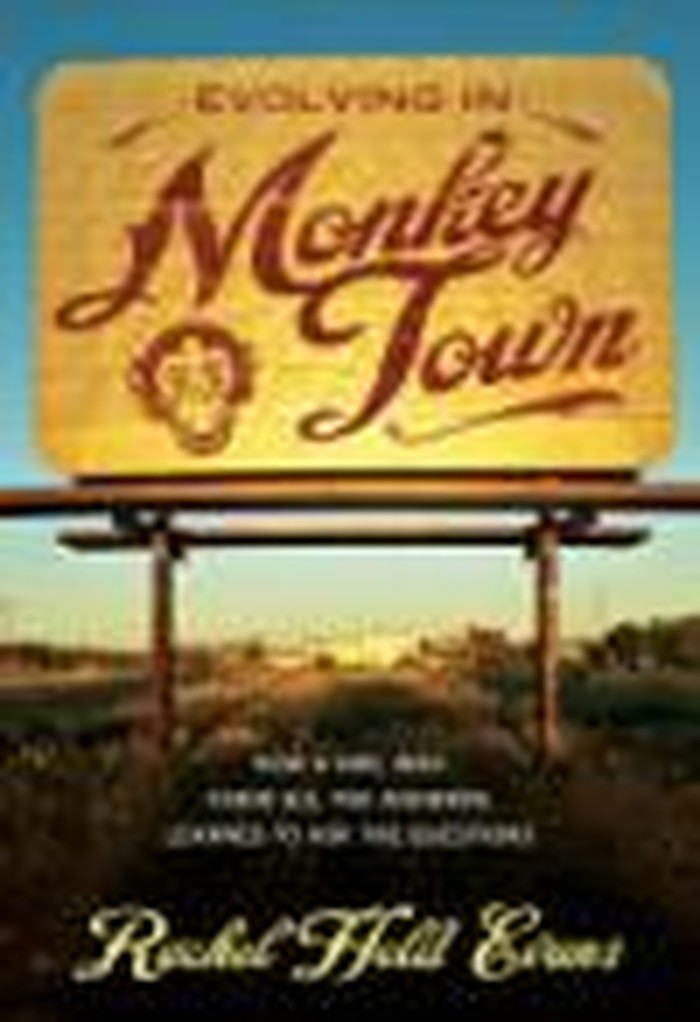Faith Evolves in Rachel Held Evans' Monkey Town
- Kelley Mathews Crosswalk.com Contributing Writer
- Published Jul 12, 2010

Author: Rachel Held Evans
Title: Evolving in Monkey Town
Publisher: Zondervan
Evolving in Monkey Town follows the faith journey of author Rachel Held Evans, who, as the daughter of a Bryan College professor, was raised on conservative Christian doctrine while growing up in Dayton, Tennessee, the heart of evangelicalism.
Evans uses the setting as the axis of her story—Dayton was the site of the 1925 Scopes trial, which pitted anti-evolutionist Christians against a teacher accused of teaching Darwinism to his class. While the Christians won the trial, they lost the overall battle and the town became a caricature of uneducated, illogical "fundamentalists." It was in Dayton that Evans became the poster child for conservative evangelicalism.
She summarized the faith of her younger years thusly: "Salvation wasn't just about being a Christian; it was about being the right kind of Christian, the kind who did things by the Book."
And it was in Dayton that she began to question who determined the "right kind of Christian." She noticed that events in the world didn't make sense in her brand of faith, and her sense of justice became outraged. In her survivor guilt, Evans questioned God.
In this focused memoir, Evans relays her journey from certainty about the details of faith, to her doubts about God himself, to the uneasy truce she has managed to fashion between Jesus and Christianity. Nothing is sacred, except perhaps Jesus.
Evans offers her own faith journey as the primary illustration for her argument that faith must change, or evolve, in the postmodern world in order to survive. Readers will have to decide if her evolving theology attacks essential (core to orthodoxy) beliefs or upholds them by shedding the non-essentials.
Evangelical readers may find their pet beliefs lambasted. Evans doesn't hold back in mocking popularly taught principles and practices (purity rings, True Love Waits, altar calls, "biblical" dating, Bible sword drills, and others). Her honesty is raw, at times painfully so. But an honest reader will find truth within her arguments, even if perhaps not agreeing with her every conclusion.
Evans displays an unholy sense of humor. A few examples:
-
"For as long as I can remember, the Bible has been compared to a weapon and for as long as I can remember, it has been used as one."
-
"I know Christians aren't supposed to say this, but there are some Bible verses that I don't like much."
-
"The longer our lists of rules and regulations, the more likely it is that God himself will break one."
-
"If it's starting to sound like I believe in works-based salvation, it's because I do."
Some readers will be offended by the author's accusations, reflections, and conclusions based on her life as an evangelical know-it-all. Many readers will be delighted by her clever turn of phrase and laugh-out-loud observations of American Christian culture. That she can often evoke both emotions simultaneously speaks to Evans' writing skill directed at a provocative topic. Readers will close the book (perhaps snap it shut?) convicted, challenged, angry, sympathetic, smug, thoughtful, or some combination of these feelings. One thing you can't do is close it unmoved.
**This review first published on July 13, 2010.

.jpg)


















